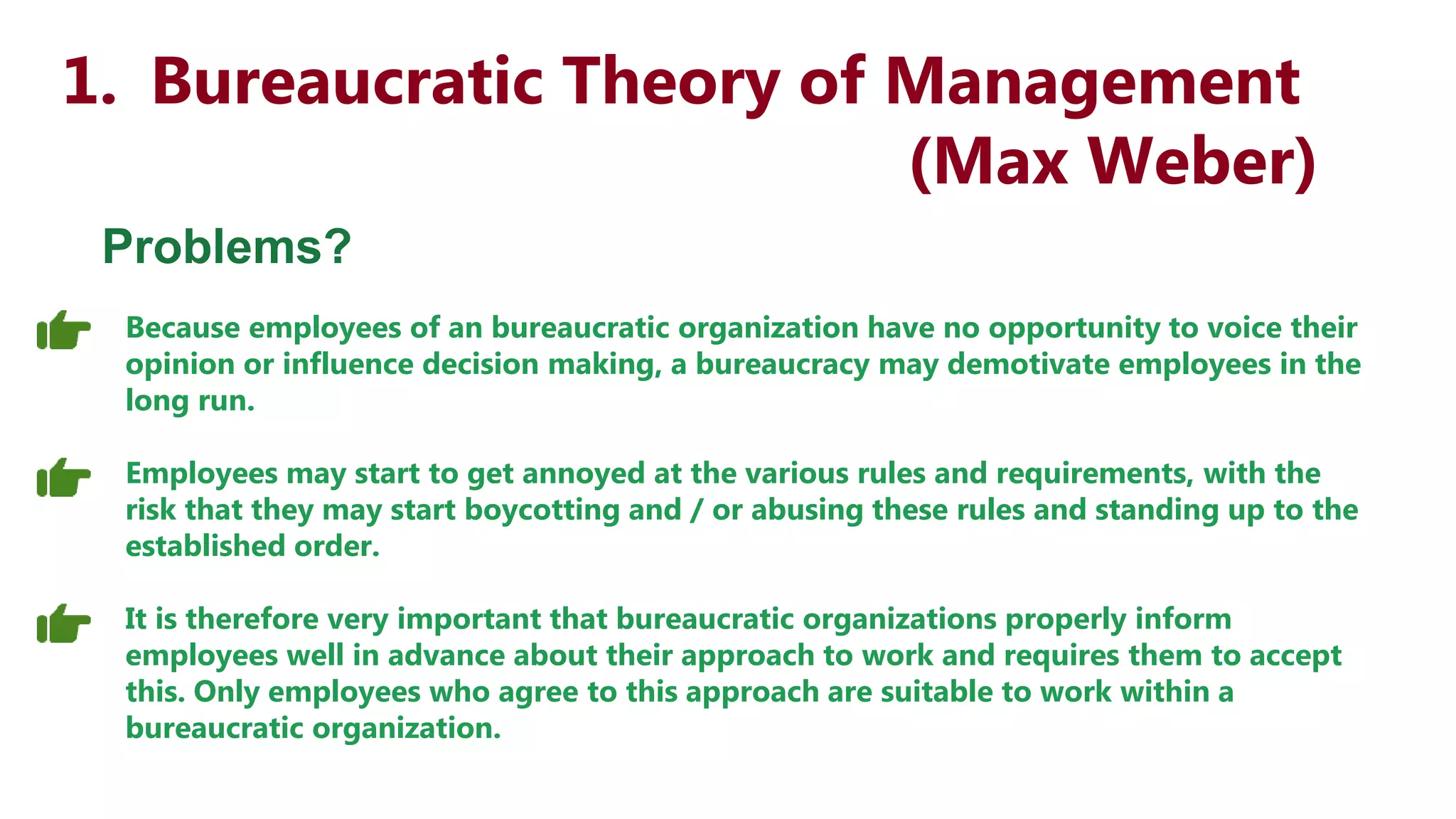Classical management theories focused on supervision, organization, and performance. Early theories based leadership on reward and punishment. Classical management theory prescribed specialization of labor and centralized decision-making to maximize profit. It viewed organizations mechanistically and ignored human behavior. Major classical theories included: 1) Bureaucratic theory emphasized rigid hierarchies, rules, and impersonal interactions; 2) Administrative theory proposed structures and principles like division of labor and unity of command; 3) Scientific management theory used scientific methods to optimize jobs and increase productivity through cooperation between workers and managers.















